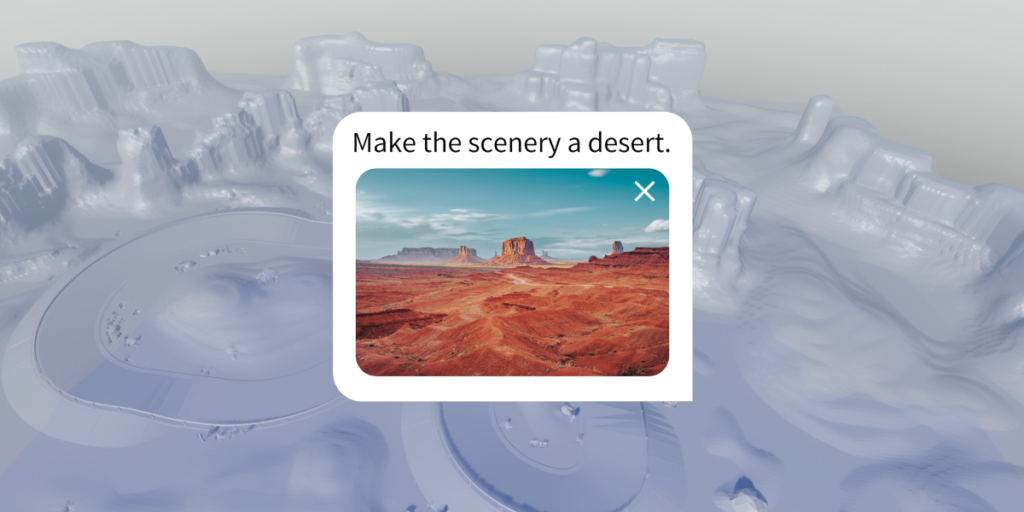What’s New: Roblox has announced a groundbreaking generative AI tool designed to revolutionize 3D scene creation on its platform. This new feature will allow creators to generate entire 3D environments using simple text prompts. For example, users can type commands like “generate a track in the desert,” and the AI will create the specified scene. Additionally, the tool will enable modifications to existing scenes, such as transforming a day scene into night or changing a desert landscape into a forest.
Working Principle: Once operational, the generative AI will interpret text prompts to quickly generate complex 3D scenes. This advancement aims to simplify the creative process for developers, enabling rapid creation and modification of environments.
Why This is a Big Deal: Although Roblox developers currently use the platform’s Creation Studio to manually build 3D scenes, this new AI tool promises to drastically reduce the time required for scene creation. It also lowers the barrier for developers with limited 3D art skills, allowing them to craft more compelling and varied environments with ease.
Ray Kurzweil: Technology Will Enable Us to Fully Realize Our Humanity
By Ray Kurzweil: Renowned technologist and futurist Ray Kurzweil, author of “The Singularity Is Near: When We Merge with Artificial Intelligence,” shares his vision of the future. He predicts that by the end of this century, AI will surpass human cognitive abilities, triggering a rapid advancement in fields like robotics, nanotechnology, and genomics.
The Vision: Kurzweil envisions a future where technology not only meets our basic needs but also fulfills our deepest desires to learn, create, and connect. This technological evolution promises to transform our current struggles into a distant memory, reminiscent of the leap our ancestors made from hunter-gatherer life to modern civilization.
Historical Perspective: Kurzweil draws a parallel between today’s anticipated advancements and the dramatic changes experienced by our Paleolithic ancestors, suggesting that the future leap in technology will be as transformative as the transition to modern life was for early humans.
